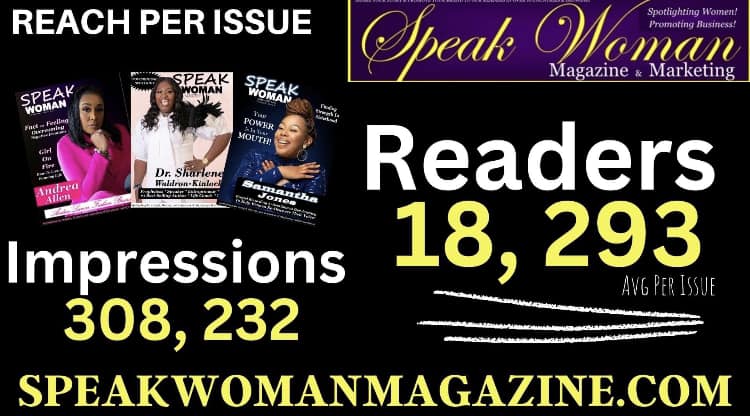The Complex History and Impact of the "Strong Black Woman" Stereotype on Black Women's Mental Health
As a Black Woman, it's not uncommon to hear the phrase "Strong Black Woman" used to describe us. It's a term that has been around for decades, but where did it come from, and what is its impact on our mental health?
The origins of the "Strong Black Woman" stereotype can be traced back to the antebellum South when the "Mammy" character was used to describe Black Women. The "Mammy" was seen as submissive and willing to put the needs of others before her own, a caretaker and nurturer. In the post-Civil Rights era, the image of the "Strong Black Woman" emerged as a counter to this stereotype. This image portrayed Black Women as resilient and strong in the face of adversity.
Today, the "Strong Black Woman" is celebrated for her strength and resilience, but this image can also be problematic. It can create the belief that Black Women are invincible and do not need help or support, causing us to suffer in silence. The pressure to constantly be strong and resilient can lead to mental health issues such as anxiety and depression.
Black Women face a unique set of challenges that stem from systemic oppression and discrimination. Racism and sexism create a double burden that can be emotionally and mentally exhausting. The expectation to be a "Strong Black Woman" only adds to this burden.
It's essential to recognize that each Black Woman's experiences and struggles are unique. We cannot be reduced to a stereotype, and we should not feel ashamed to seek help or support. We must prioritize our mental health and break the cycle of suffering in silence. We can celebrate our strength and resilience while also acknowledging the impact that systemic oppression has on our mental health.
The "Strong Black Woman" stereotype has a complex history that is rooted in systemic oppression and discrimination. While it's important to celebrate the strength and resilience of Black Women, it's equally important to recognize the impact that this stereotype can have on our mental health. We must break the cycle of suffering in silence and prioritize our mental health. Our strength and resilience should not be used to justify the need for constant resilience but rather to empower ourselves to ask for help when needed. In Crisis? Get Help Now! Call 911 or Substance Abuse and Mental Health Services Administration (SAMHSA): Text 988 or call 1-800-662-4357
The origins of the "Strong Black Woman" stereotype can be traced back to the antebellum South when the "Mammy" character was used to describe Black Women. The "Mammy" was seen as submissive and willing to put the needs of others before her own, a caretaker and nurturer. In the post-Civil Rights era, the image of the "Strong Black Woman" emerged as a counter to this stereotype. This image portrayed Black Women as resilient and strong in the face of adversity.
Today, the "Strong Black Woman" is celebrated for her strength and resilience, but this image can also be problematic. It can create the belief that Black Women are invincible and do not need help or support, causing us to suffer in silence. The pressure to constantly be strong and resilient can lead to mental health issues such as anxiety and depression.
Black Women face a unique set of challenges that stem from systemic oppression and discrimination. Racism and sexism create a double burden that can be emotionally and mentally exhausting. The expectation to be a "Strong Black Woman" only adds to this burden.
It's essential to recognize that each Black Woman's experiences and struggles are unique. We cannot be reduced to a stereotype, and we should not feel ashamed to seek help or support. We must prioritize our mental health and break the cycle of suffering in silence. We can celebrate our strength and resilience while also acknowledging the impact that systemic oppression has on our mental health.
The "Strong Black Woman" stereotype has a complex history that is rooted in systemic oppression and discrimination. While it's important to celebrate the strength and resilience of Black Women, it's equally important to recognize the impact that this stereotype can have on our mental health. We must break the cycle of suffering in silence and prioritize our mental health. Our strength and resilience should not be used to justify the need for constant resilience but rather to empower ourselves to ask for help when needed. In Crisis? Get Help Now! Call 911 or Substance Abuse and Mental Health Services Administration (SAMHSA): Text 988 or call 1-800-662-4357
ADVERTISE YOUR BRAND TO OUR GROWING AUDIENCE ALL OVER THE WORLD!
WE LOVE OUR ADVERTISERS
Speak Woman Advertisers are thriving businesses and brands ready to connect with you to provide excellent products and services for all of your personal and business needs. We invite you to promote your business to our readers in over 10 countries. Schedule your consultation to discuss the best options for your brand.
Speak Woman Advertisers are thriving businesses and brands ready to connect with you to provide excellent products and services for all of your personal and business needs. We invite you to promote your business to our readers in over 10 countries. Schedule your consultation to discuss the best options for your brand.
Ready To Promote Your Brand? Advertise With Speak Woman!
*11+ countries & 300,000+ impressions to date*
*11+ countries & 300,000+ impressions to date*
TAKE A LOOK AT OUR REACH
PROMOTE YOUR BRAND IN OUR UPCOMING ISSUE
The materials on this site may not be reproduced, distributed, transmitted, or used in any way without written permission from Speak Woman Magazine, LLC © 2021. All rights reserved
Copyright © 2021
Copyright © 2021



